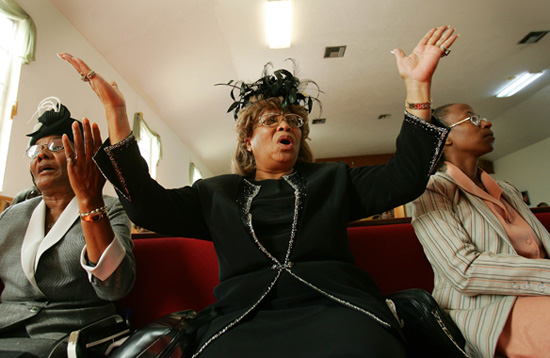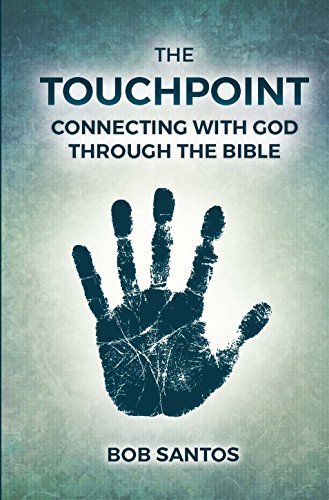
(Photo Credit: Religion and Politics)
In “20 Lessons I’ve Learned Since Leaving The Church,” Makiah Green offers 20 “lessons” she has learned about church attendance since leaving her church. Green writes, “I never imagined that I could exist outside the Church I once held so dear. But due to the routine state-sanctioned violence that is being inflicted on my people, and the inadequate response from the church (among other things), I have decided to remove myself entirely from a system that claims to value my soul, but fails to show up for my Black body.” While I have (and continue to) passionately critiqued (see 5 Reasons Why Many Black Churches Are Failing) many churches, especially many black churches, for their various failings, bible-based Christians are required to be spiritually and theologically sound in their praxis—not just with their social and political practices and ideologies.
While I agree with some of Green’s “lessons,” much of what she asserts lacks substantive grounding in biblical truths and doctrines. For the sake of time and space, I will address two statements unsubstantiated by proper biblical context and exegesis.
A Hasty, Sweeping Generalization: “These pastors ain’t loyal.” Really?
Before I address the dearth of accurate biblical context and exegesis in the selected statements, it’s vital to highlight one of the glaring fallacies, a hasty, sweeping generalization, in her article: “These pastors ain’t loyal.” Although proffering such a position allows for one to add some hip flavor to the piece, evoking Chris Brown’s “Loyal,” which is problematic for several reasons in itself, painting all pastors with a careless broad brush is toxic, faulty argumentation and unbecoming of a serious “writer” and “revolutionary,” as Makiah Green identifies herself.
Another Hasty, Sweeping Generalization: “White evangelicals (and the Black evangelicals spouting the same white, patriarchal values) are modern manifestations of neocolonialism.” Really?
When she posits that “white evangelicals (and the Black evangelicals spouting the same white, patriarchal values) are modern manifestations of neocolonialism,” the author, again, makes a hasty, sweeping generalization, abandoning the intellectual necessity of pinpointing nuances and variances in this population of believers.
Another Hasty Generalization: “I don’t need a church home in order to facilitate a relationship with God.” Really?
Green, as well as too many professing believers, unfortunately, claim the following: “I don’t need a church home in order to facilitate a relationship with God.” Hebrews 10:25 reads, “Not forsaking the assembling of ourselves together, as the manner of some is; but exhorting one another: and so much the more, as ye see the day approaching.” The context of this verse is meeting in a church or synagogue—not in one’s home, not streaming live, not gathering with a group of saved friends in one’s home. In the aforementioned verse, God issues a command to attend church regularly. He wants us dependent on one another, and in his infinite wisdom, He demonstrates how essential church or synagogue is in facilitating such dependency and “exhortations.” God intends, through our interactions with fellow believers at church, to supply the encouragement and persuasion on various issues each believer needs.
Church-based Teaching and Christ-centered Fellowship
Also, Acts 2:42, penned with attending church regularly as a context, says, “And they continued steadfastly in the apostles’ doctrine and fellowship, and in breaking of bread, and in prayers.” From this verse, one finds that God desires for an immense amount of one’s learning about the Word of God to come from teaching done inside of a church or synagogue, and that He mandates us to partake in the “fellowship” with one another and Him in which we were called when we first received salvation. Christ has created us as one body, for which there is no life and fellowship with Him outside of this one body: “For as the body is one, and hath many members, and all the members of that one body, being many, are one body: so also is Christ” (I Corinthians 12:12).
The Church in the Believer-Messiah Relationship & the Significance of the Preacher
The Apostle Paul delivers this line of rhetorical inquiry: “How then shall they call on him in whom they have not believed? and how shall they believe in him of whom they have not heard? and how shall they hear without a preacher?” (Romans 10:14). Here, Paul responds to the importance of receiving from God in church and through His messenger, “a preacher.” Moreover, Romans 10:17 informs us that “So then faith cometh by hearing, and hearing by the word of God.” Again, in the context of church activity, “faith,” necessary for the Christian life, “cometh” by “hearing” the preached Word of God. The foundation one needs in the Word of God, therefore, emerges in the church setting—not in one’s home, not simply in one’s private bible study.
“As a Black woman, I have the power and autonomy to make my own decisions.” More biblical precision is needed, though.
Although Ms. Green is accurate in part about “As a Black woman, I have the power and autonomy to make my own decisions,” she overlooks the more vital death of self that takes place as part of the new birth in Christ. Yes, God has given us free will; however, our will is to be dominated by His will as we yield our mind, mouth, and ways to Him (Philippians 2:5; Philippians 2:13). When she contends that “I have decided to remove myself entirely from a system that claims to value my soul, but fails to show up for my Black body,” this constitutes a “falling away from grace,” a grace for which she claims to be enthused about receiving (Galatians 5:4). For Galatians 2:14 proclaims, “I am crucified with Christ: nevertheless I live; yet not I, but Christ liveth in me: and the life which I now live in the flesh I live by the faith of the Son of God, who loved me, and gave himself for me.” A believer must remain “established in God’s righteousness” and not a righteousness based on his or her own self-effort, self-performance (Isaiah 54:14).
Conclusion
In short, in as much as I strongly agree with Makiah Green’s frustrations with how many churches aren’t mobilizing to fight “the routine state-sanctioned violence that is being inflicted on my people [black people],” she has capitulated to a flawed spirituality and troubling theology. Wouldn’t it be better for a “revolutionary” to seek the change in her local church from within—instead of simply avoiding and disengaging with it? How about joining a church where black liberation theology is employed?
Dr. Antonio Maurice Daniels
University of Wisconsin-Madison



